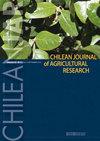Macroscopic and microscopic fungi with insecticidal activity
IF 1.7
4区 农林科学
Q2 Agricultural and Biological Sciences
引用次数: 0
Abstract
Agri-food production is affected by various factors, such as insect pests. Inadequate use of pesticides has generated resistance, and some pesticides have been shown to affect human health and the environment. Therefore, alternative control methods have been sought, such as the use of biocontrol with fungi; these organisms have shown activity against insect pests. Thus, this review compiles relevant and important studies that have been carried out over the last four decades. In general, fungi are divided into two large groups, macroscopic and microscopic fungi. In these two groups, possible fungal candidates with activity against insects have been found. They were subdivided into two groups: microscopic entomopathogenic fungi and macroscopic entomopathogenic fungi with basidiomata. In the case of microscopic entomopathogenic fungi, only the main species of these fungi ( Metarhizium anisopliae , Beauveria bassiana, and Isaria fumosorosea ) have been examined. These fungi present degrees of specificity at the family or closely related species level. For these three fungal species alone, more than 500 species of affected insects have been reported in this and other reviews. Finally, more than 200 species of fungi with basidiomata have been studied for their insecticidal activity. Additionally, possible compounds with insecticidal activity, such as ibotenic acid, beauvericin, ergosterol, and ostreolysin, are described. The studies found in the present review of fungi with insecticidal activity are promising. It was concluded that fungi, their compounds, and the proteins they contain may have a biotechnological application in the control of insect pests.具有杀虫活性的宏观和微观真菌
农业食品生产受到各种因素的影响,如害虫。杀虫剂使用不当产生了耐药性,一些杀虫剂已被证明会影响人类健康和环境。因此,人们寻求替代的控制方法,例如使用真菌生物控制;这些生物已显示出对抗害虫的活性。因此,本综述汇集了过去四十年来进行的相关和重要的研究。一般来说,真菌分为两大类,宏观真菌和微观真菌。在这两组中,已经发现了可能具有抗昆虫活性的候选真菌。它们被细分为两组:微观昆虫病原真菌和宏观担子菌属昆虫病原真菌。在微观昆虫病原真菌的情况下,只对这些真菌的主要物种(绿僵菌、白僵菌和烟曲霉)进行了检查。这些真菌在家族或密切相关的物种水平上表现出一定程度的特异性。仅就这三种真菌而言,本综述和其他综述中就报道了500多种受影响的昆虫。最后,对200多种担子体真菌的杀虫活性进行了研究。此外,还描述了可能的具有杀虫活性的化合物,如伊博藤酸、白僵菌素、麦角甾醇和鸵鸟素。本综述中对具有杀虫活性的真菌的研究是有前景的。结果表明,真菌及其化合物及其所含蛋白质可能在控制害虫方面具有生物技术应用。
本文章由计算机程序翻译,如有差异,请以英文原文为准。
求助全文
约1分钟内获得全文
求助全文
来源期刊
CiteScore
3.00
自引率
11.80%
发文量
60
审稿时长
6 months
期刊介绍:
ChileanJAR publishes original Research Articles, Scientific Notes and Reviews of agriculture, multidisciplinary and agronomy: plant production, plant protection, genetic resources and biotechnology, water management, soil sciences, environment, agricultural economics, and animal production (focused in ruminant feeding). The editorial process is a double-blind peer reviewing, Editorial Office checks format, composition, and completeness, which is a requirement to continue the editorial process. Editorial Committee and Reviewers evaluate relevance and scientific merit of manuscript.

 求助内容:
求助内容: 应助结果提醒方式:
应助结果提醒方式:


